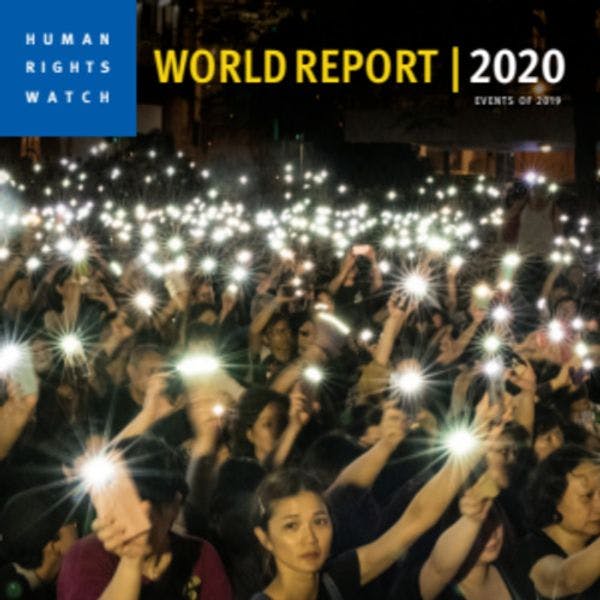Human Rights Watch - World Report 2020
World Report 2020 is Human Rights Watch’s 30th annual review of human rights practices around the globe. It summarizes key human rights issues in more than 100 countries and territories worldwide, drawing on events from late 2018 through November 2019.
In his keynote essay, Human Rights Watch Executive Director Kenneth Roth examines the increasingly dire threat to the global system for protecting human rights posed by the Chinese government under President Xi Jinping. Deepening and increasingly sophisticated domestic repression show that China’s leaders view human rights at home as an existential threat. That, in turn, has led Beijing to see international laws and institutions for the defense of human rights as an existential threat.
As a result, Chinese authorities seek to censor criticism of China overseas, mute attention to human rights in its global engagements, and weaken global rights mechanisms. At stake is a system of governance built on the belief that every person’s dignity deserves respect—that regardless of official interests, limits exist on what states can do to people.
Noting that global institutions are built in part “on the belief that every person’s dignity deserves respect, that regardless of the official interests at stake, there are limits to what states can do to people,” Roth concludes that China is not simply a new and emerging power finding its place, but a country that poses an existential threat to the international human rights system.
The rest of the volume consists of individual country entries, each of which identifies significant human rights abuses, examines the freedom of local human rights defenders to conduct their work, and surveys the response of key international actors, such as the United Nations, European Union, African Union, United States, China, and various regional and international organizations and institutions.
The book reflects extensive investigative work that Human Rights Watch staff undertook in 2019, usually in close partnership with human rights activists and groups in the country in question. It also reflects the work of our advocacy team, which monitors policy developments and strives to persuade governments and international institutions to curb abuses and promote human rights. Human Rights Watch publications, issued throughout the year, contain more detailed accounts of many of the issues addressed in the brief summaries in this volume. They can be found on the Human Rights Watch website, www.hrw.org.
As in past years, this report does not include a chapter on every country where Human Rights Watch works, nor does it discuss every issue of importance. The absence of a country or issue often simply reflects staffing or resource limitations and should not be taken as commentary on the significance of the problem. There are many serious human rights violations that Human Rights Watch simply lacks the capacity to address.
The factors we considered in determining the focus of our work in 2019 (and hence the content of this volume) include the number of people affected and the severity of abuse, access to the country and the availability of information about it, the susceptibility of abusive forces to influence, and the importance of addressing certain thematic concerns and of reinforcing the work of local rights organizations.
The World Report does not have separate chapters addressing our thematic work but instead incorporates such material directly into the country entries. Please consult the Human Rights Watch website for more detailed treatment of our work on children’s rights; women’s rights; arms and military issues; business and human rights; health and human rights; disability rights; the environment and human rights; international justice; terrorism and counterterrorism; refugees and displaced people; and lesbian, gay, bisexual, and transgender people’s rights; and for information about our international film festivals.
